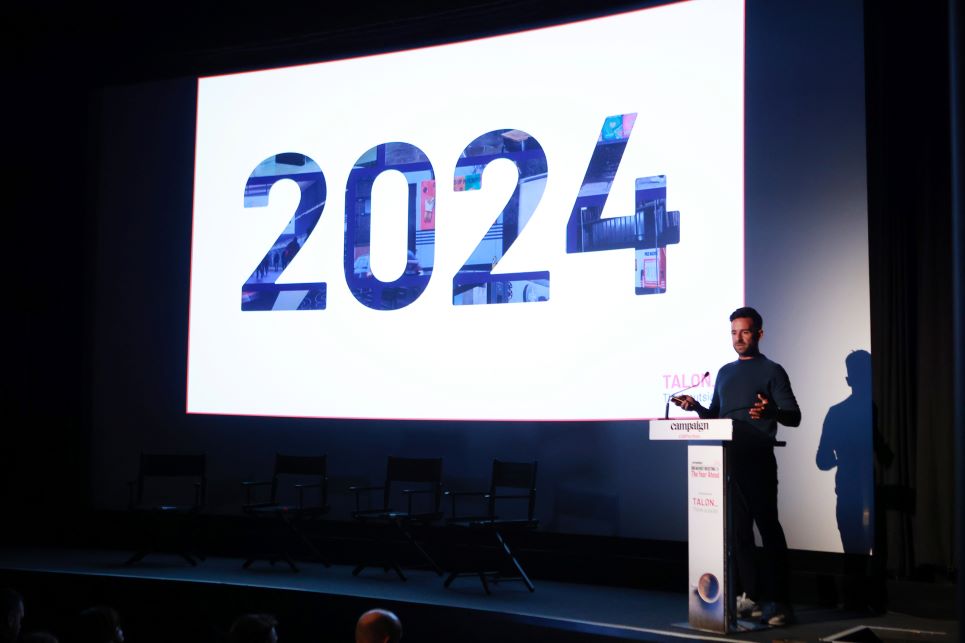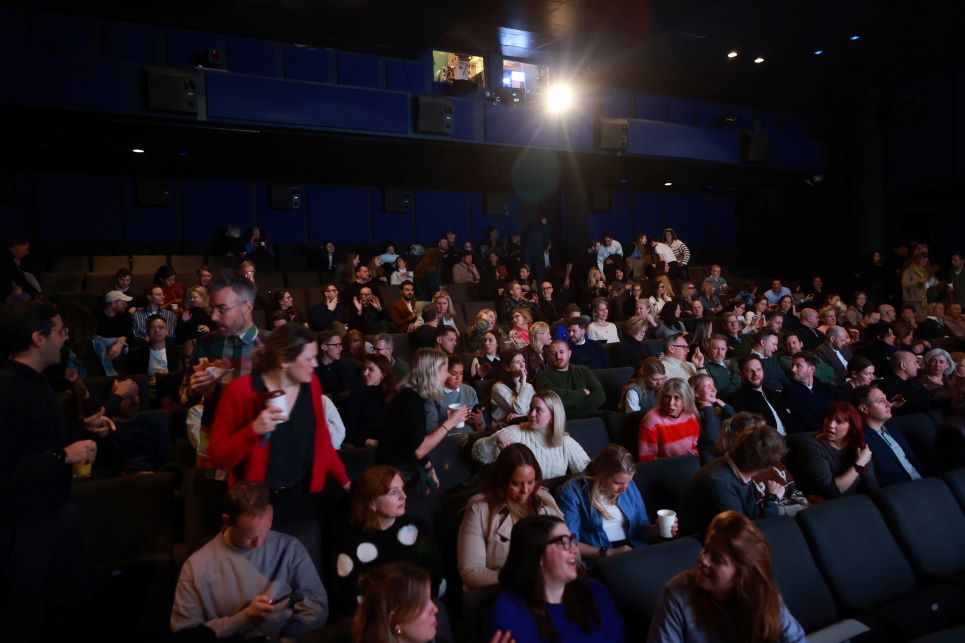
Campaign kicked-off 2024 with its annual ‘Year Ahead‘ breakfast briefing with an impressive cross-section of UK marketing and advertising talent, hosted at Soho’s Curzon Cinema. MediaSense Senior Consultant, Richard Tudor summarises key findings and what we can expect for the year ahead.
To everyone’s relief, there was collective acknowledgement that 2024 would finally say goodbye to the remnants of post-Covid, “blandemic” marketing – it is high time for advertisers to excite and amuse their audiences again.
Pandemic aside, there is still the significant hurdle of a very real cost-of-living crisis. Whilst brands can look forward with optimism, the constraints of a 2024 economy still need to be tackled. “Doing more with less” was a recurring theme for several of the speakers. Creating cost-efficiencies within the marketing spectrum and becoming smarter with creative comms is a challenge being met with positivity by both agencies and advertisers alike.
“Becoming more efficient and effective is a still a huge challenge”. Jane Stiller (Chief Marketing Officer, ITV) explained how the marketing ecosystem was growing and diversifying. “Experts are needed in a greater array of disciplines and the best brands will acknowledge where they need help and seek the appropriate individuals or agencies to grow their businesses”.
2024 will also see on-going focus on KPI tracking, a point raised by Toby Horry (Global Marketing Director, TUI). Using media attribution as an example, Horry stated that “a surprisingly large number of advertisers still rely on last-click attribution and solely focus on media-based KPIs (e.g. CPC or CPVs)”. Businesses that want to thrive in 2024 will think more critically, challenging their suppliers to demonstrate how attribution can be more interlinked with business metrics and ensure the greatest value to brands. Those who have a crystal-clear measurement framework in place will be able to clearly verbalise what a “successful” campaign looks like. Linking media and creative KPI performance with mixed marketing modelling will do even more to enrichen post-campaign analysis.

AI was, of course, a focus for 2024. Side-stepping the more significant potential existential crises of AI usage, Marcos Angelides (MD, Spark Foundry) gave notable examples of how AI can, and will, get used by brands. With a focus on ecommerce, Marcos demonstrated various ChatGPT commands, initially inputting an image of a jacket that he had seen online. He instructed ChatGPT to return images of complimentary items of clothing and apparel, for which he set a bespoke price range. The response was impressive, returning a full wardrobe of ideas, within his chosen budget. It only takes a small leap to see how and why brands will use this functionality in their own ecommerce and digital platforms.
As well as focusing on the internal set up of your marketing ecosystem, good marketeers tend to want to know a little about what is going on outside of the business too. Jay Young (Chief Client Officer, Grand Visual) gave key insights around how human behaviour is changing. An unexpected but interesting takeaway was that people’s nights out are winding down earlier. With flexible working now normalised, OpenTable data trends show us that this was enabling people to meet earlier, demonstrated by a significant increase in 6.00pm and 6.30pm dinner bookings. This is a small, but enlightening, example of the post-pandemic “new normal” we find ourselves in.
As alluded to above, working 5-days in the office is now a thing of the past. Marketing companies are unable to entice the right talent without the offer of flexible working. The physical and mental benefits of having a ‘WFH balance’ are clear for all to see. However, there is also a growing recognition that office-hours are still incredibly important – all panellists on the ‘Year Ahead for Agencies’ discussion categorically agreed that idea creation and product development works best with everyone in the same room. Without this, there is a real risk of a lack of growth and engagement from junior staff members, who enter a workforce where sitting in front of a laptop screen in your home becomes the norm. Most workplaces now have compulsory in-office days, typically 2 a week for the people I spoke with. These hours are precious; face to face interactions are imperative for the industry to continue to grow, collaborate and thrive.
Much was packed into this 3-hour briefing. 2024 will continue to feel the ramifications of a post-Covid economy, even if we have moved on from a social standpoint. On top of this, general elections in the UK, US and India (to mention a few) will contribute to bringing a staggering 3bn people to the polls globally. Brands will need to be aware and appropriately reactive to these kinds of external factors.
To sum up the collective themes from the session – for those looking to continue to grow in 2024, efficiency, effective attribution, greater collaboration and smarter marketing are the key priorities.